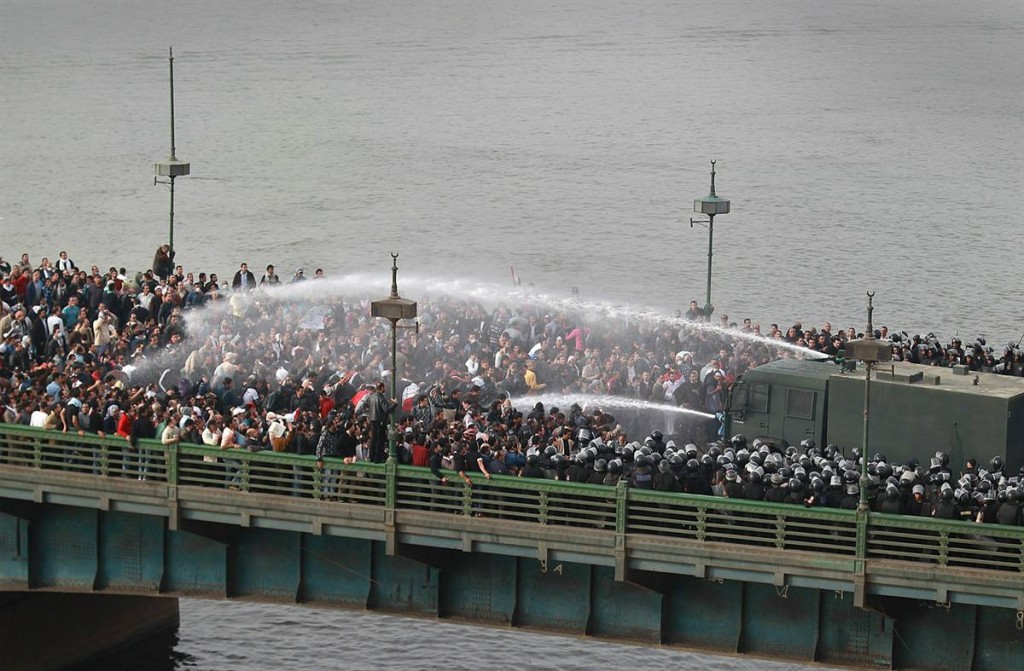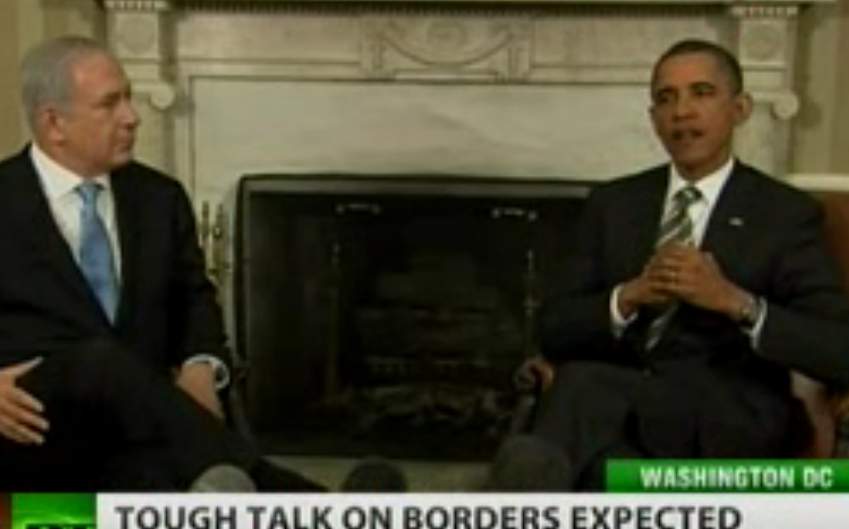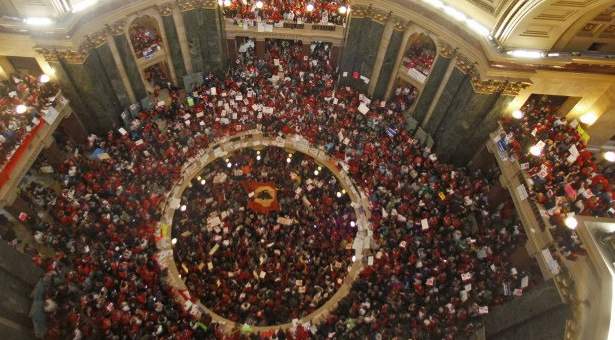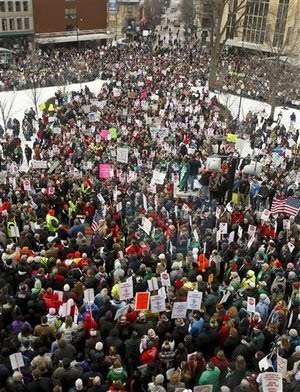Podcast: Play in new window | Download
Updates:
- Supreme Court Gives Police A New Entry Into Your Home
- Subpoena Issued to Writer in C.I.A.-Iran Leak Case
- CCR Launches Case Seeking U.S. Knowledge of and Role in Deadly Israeli Attack on Humanitarian Flotilla to Gaza
——
Middle East Update: Egypt, Israel and the United States
Labor strikes continue in Egypt as tourism declines and the crime rate increases. There have been many strikes including Egyptian police unions who are demanding higher wages. We’re joined by writer and Middle East activist Phyllis Bennis. She is the director at the New Internationalism Project at the Institute for Policy Studies. Phyllis has recently returned from Egypt and she joins us today for an update and analysis. Update on Egypt Gaza Border
- The trip to Egypt merged my work with the Israel-Palestine issue and my broader work in the region of US policy towards the Arab Spring.
- There are no guarantees that the incredible accomplishments of the Arab Spring will lead to the new democratic opening in Egyptian society let alone the Egyptian economy, that people are working for.
- Everybody agrees that the wall of fear that made possible the kind of Mubarak dictatorship, that led to the collaboration of Egypt and Israel, under US auspices in repressing Palestinians and imposing the siege on Gaza, that that’s no longer going to be possible.
- The widespread use of arrests and torture, torture was far more prevalent and routine in Egypt. I’ve studied the region for years, and I didn’t know how ordinary it was.
- Every sector in society in Egypt, were engaged in meetings. Women’s organizations, privacy rights groups, trade unions, the labor movement.
- There’s a lot of fear, but also a sense of excitement in the ability for people to fight back and new levels of unity across sectarian lines, across generational lines, across class.
- The question of the role of the US remains very key. Egypt’s new foreign minister Nabil al-Arabi, says the siege of Gaza must end. Permanently opening the border to Gaza.
- Egypt’s military will play a role in the border to Gaza. Now the foreign minister position is up for grabs again.
- The media in Egypt is overwhelmingly in Arabic. Al-Aron, the flagship daily newspaper in Egypt, longest state run newspaper, now reflects the interest and approach of the new government.
- Regarding elections, I don’t think there was a unified left position and a right.
- If the elections were held soon, there is a sense that Mubarak’s NDP, National Democratic Party and the Muslim Brotherhood, those existing parties would trounce everyone else.
- Many support quick elections which are due to be held next month.
- Anytime you have a progressive revolutionary process underway that’s being guaranteed by the old military, you’re kind of in trouble.
- I heard one Egyptian commentator exalted about one of Mubarak’s son being in the same jail cell that he spent many months in. This has not been a economic revolution, we have not seen an overturning of the neo-liberal economic policies.
- Israel and Palestine: The code for land swaps is that Israel gets to keep the 3 main settlement blocks as a starting point.
- We’re talking 40 percent of the land in the West Bank. Obama’s soaring rhetoric, “we stand with the impoverished fruit seller in the streets of Tunisia, rather than with the dictator”
- Obama’s main challenge was how do we position ourselves to be a friend of democracy while maintaining our strategic alliances with the existing dictators.
Guest – Phyllis Bennis, directs the New Internationalism Project at IPS. She is also a fellow of the Transnational Institute in Amsterdam. She has been a writer, analyst, and activist on Middle East and UN issues for many years. In 2001 she helped found and remains on the steering committee of the U.S. Campaign to End Israeli Occupation.
—–
Resistance Maintains In Wisconsin
Protests continue in Wisconsin against the union busting bill signed by Governor Scott Walker in March. The demonstrations are also aimed at the anti-people measures contained in the budget proposal that would cut more than 3.5 billion dollars from services that help the poor and working class. There is still a chance that this bill will not become law. An injunction is in place because of the people’s massive resistance. The movement demands are full legalization for immigrants, oppose budget cuts, keep in state tuition for immigrant students and oppose any legislation that targets immigrants in Wisconsin.
- The new governor announced drastic changes under the “budget repair” bill. Virtually a bargaining rights of public union employees would be rescinded.
- Basic environmental laws would be repealed, and communities that came up with a minus budget would fall under the control of political appointees who could replace them.
- As this was attempted to being passed in the Senate, 14 Democrats fled the state and remained sequestered for a couple of weeks.
- While in Madison, crowds ranging from 1000, to 100 thousand, circled the Capitol on an almost daily basis, and sat in, slept in on the Capitol rotunda for 2-3 weeks.
- As in other states and in Congress, the Republicans insist that pay and benefits of public workers were greater than those in private sector, factories have fled and private sector workers are doing so much worse,
- The idea of public unions was illogical and needed to be cut back because they were a powerful voting block.
- The response from the unions was if belt tightening is necessary we expect everyone to do it, but don’t take away our bargaining rights and our basis for dignified labor.
- Not when huge tax benefits are being delivered to corporations. Its not a mystery that the Koch Brothers from Kansas were the major backers of Scott Walker’s campaign. They set up an office only a block from the Capitol. They are very likely the architects of the ideas and the plans.
- Public resources are being sold off with no bid contracts.
- Both sides are geared up around current and ongoing legal processes that are beyond the ken of the ordinary Wisconsinites.
- Some members of the Democratic party were not happy with the mass demonstrations.
- Wisconsin protests effected most emphatically Ohio, Pennsylvania and New Jersey, Maine.
- There has been an occupation at the Capitol of Washington State It was incumbent to us to show up once a day, some of us twice a day, to march around the Capitol. There’s a deep ambiguity here, on the one hand the Republicans have to be smashed.
- The Obama signs all went down from the yards a long time ago. There’s an ambivalence here, and its reflected nationally.
Guest – Paul Buhle, senior lecturer at Brown University, a historian of American radicals, a former member of Students for a Democratic Society and author of many books including images of American Radicalism, Che, A Graphic Biography, and Isordore Duncan, a graphic biography by Sabrina Jones.
—————————————————-



